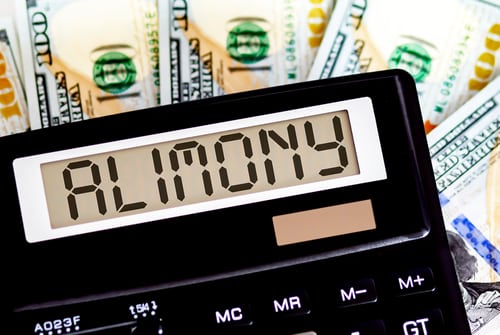As a divorce lawyer in Charleston, South Carolina, I’ve had clients tell me that another lawyer ripped them off during their divorce by overcharging them. Besides what I hear from clients’ past experiences with other divorce attorneys, I’ve had cases where I suspect that the other divorce attorney may be overcharging their client. Over-billing happens when a divorce lawyer charges a client more than is legally or ethically acceptable on an invoice or a bill. In this article, I list all of the signs that your divorce attorney may be over-billing you and I explain the ways to avoid getting over-billed (or even ripped off) by your attorney during your divorce.
Divorce Clients are “Low-Hanging Fruit” for Family Court Attorneys
Family law is perhaps the one area of legal practice where the clients are the most susceptible to getting over-billed by their lawyer. The reason why clients are so vulnerable to getting ripped off by a divorce attorney is that divorce cases can be highly emotional for the client. Clients are typically angry, scared, or depressed and oftentimes not thinking at their rational best. Therefore, to a divorce lawyer, clients can be low-hanging fruit who are ripe for the picking. When divorce lawyers play on their clients’ emotions by urging them to fight unnecessarily, then the client pays a high price for that game.
How to Tell if Your Divorce Attorney is Over-Billing You
Charging Unreasonable Hourly Rates – In South Carolina, every divorce attorney I know charges their clients by the hour. Hourly rates for divorce lawyers aren’t regulated by the state. However, Rule 1.5 of the South Carolina Rules of Professional Conduct covers a lawyer’s ethics concerning the reasonableness of their fees. Rule 1.5 states:
A lawyer shall not make an agreement for, charge, or collect an unreasonable fee or an unreasonable amount for expenses. The factors to be considered in determining the reasonableness of a fee include the following:
(1) the time and labor required, the novelty and difficulty of the questions involved, and the skill requisite to perform the legal service properly;
(2) the likelihood that the acceptance of the particular employment will preclude other employment by the lawyer;(3) the fee customarily charged in the locality for similar legal services;
(4) the amount involved and the results obtained;
(5) the time limitations imposed by the client or by the circumstances;
(6) the nature and length of the professional relationship with the client;
(7) the experience, reputation, and ability of the lawyer or lawyers performing the services; and
(8) whether the fee is fixed or contingent.
Charging Lawyer’s Rates for Clerical Work – Abraham Lincoln said, “A lawyer’s time and advice are his stock in trade.” In other words, your divorce attorney’s time is valuable (and billable). Having said that, even a child can make photocopies or put postage on an envelope. Although there may be nothing inherently unethical about a divorce lawyer charging his or her normal hourly rate to perform menial tasks, this type of billing may mean one of two things:
- Lack of Efficiency – Your divorce lawyer isn’t efficient and isn’t making proper use of his or her staff such as secretaries or paralegals who cost much less per hour than the lawyer.
- No Staff Support – Some lawyers, especially recent law school graduates, practice law without staff support or a paralegal. Although there’s nothing unethical or wrong about an attorney who does everything on their own, this type of billing can significantly increase the costs of your divorce.
Guesstimating Time – When lawyers bill, they’re required to keep contemporaneous records of their time. In other words, lawyers must record their time immediately, if not soon after, the time is spent. When lawyers don’t stay on top of their timekeeping and, instead, rely on their memory to later record time, they may record too little or too much time. Some indications that your divorce lawyer may be guesstimating his or her time include:
- Erratic Billing Practices – If your lawyer doesn’t send you bills on a regular schedule (such as the 1st of the month) but instead sends you bills at odd intervals, then your lawyer may not be keeping accurate records of his or her time.
- Untimely Billing Entries – If your lawyer sends a bill each month, then you should expect to see all of your charges for that billing time period. However, if your lawyer is billing you for the month of March yet you see time for January too, then your lawyer may not be keeping accurate records.
Rounding Up Time – Divorce attorneys bill by tenths (six minutes) of an hour. For example, suppose your lawyer charges you $300 per hour and charges in increments of one-tenth of an hour. If the lawyer writes a one-sentence email that takes just a minute or two, the lawyer will bill you $30 (.1 x $300) for that email. Many lawyers bill no less than two-tenths of an hour. Using the same example, the same email would cost you $60 (.2 x $300). Recently, I learned of a lawyer who is rounding up to three-tenths of an hour! Again, using the same example, the same email would cost you $90 (.3 x $300) for less than six minutes of the lawyer’s time.
Over-Billing For Forms – Many lawyers edit versions of old templates for lawsuits, settlement agreements, and other forms. However, instead of charging for the time spent making edits, some lawyers charge for a completely new document as if they spent the time drafting it from scratch.
Overstaffing the Case – Some divorce cases can be very complex and include many witnesses, various legal claims, and thousands of pages of documents and exhibits. In such complex cases, divorce lawyers may bring others with them to help them during depositions, mediation (structured negotiations), court hearings, or trials. However, many divorce cases can be handled by a single, prepared lawyer. Nevertheless, some lawyers will bring an entourage wherever they go for reasons such as:
- The lawyer is trying to impress others by having a following of staff or other lawyers;
- The lawyer is disorganized and doesn’t feel comfortable without support at hearings, during depositions, etc.; or
- The lawyer is trying to maximize billing by overstaffing your case.
In one of my recent family law cases, the couple never married, they had one child, and their issues were regarding custody, the parenting schedule, and a minor dispute over how to calculate child support. Because the couple never married, there were no issues concerning alimony and how to divide marital property and debts. In the grand scheme of things, this was a “simple” yet contested family court case. When I went to depositions, to mediation, or to court hearings, I went with my client and no one else. There was no need for me to take my paralegal or another lawyer from my office to court, depositions, etc. However, the other family lawyer always had an entourage of staff. This lawyer would bring along at least one paralegal or a paralegal and another lawyer. In other words, this lawyer’s client was paying several people to do the job of one lawyer.
Encouraging Fights – My professional view is that divorce attorneys should do everything within their power to keep their client’s fees low and reasonable while helping their clients end their marriage and move on with their lives. Unfortunately, because many divorce clients are emotionally charged, divorce lawyers can abuse their position of trust. A divorce lawyer can encourage clients to fight with their spouse over trivial matters or over issues that have no consequence concerning the ultimate outcome of the divorce. The end result is that the client pays higher fees without any real justification.
In the divorce case I mentioned above, I was negotiating with the other family court attorney to try to resolve our clients’ dispute. During negotiations, the other lawyer mentioned several times that this lawyer’s client was the lawyer’s “only paying client.” I took these comments to mean that the other lawyer was reluctant to settle the case because the lawyer needed money. Instead of focusing on a resolution, the other lawyer put up roadblocks to any settlement and continued to encourage the client to fight on.
Getting Personal With the Other Divorce Lawyer – Some divorce lawyers can’t separate their duties to the client from their own negative feelings about the case or the attorney on the other side. These attorneys spend their clients’ money writing pointless, nasty emails, faxes, and letters to the other lawyer. They also spend time in court focusing their hostilities on the other lawyer instead of focusing on how to finalize their client’s divorce. In the end, the lawyer’s distraction and animosity towards opposing counsel cause higher, unnecessary fees for the client.
How to Avoid Getting Over Charged By Your Divorce Lawyer
Check Online Reviews – Before you hire a divorce lawyer, check for online reviews. If the attorney has a habit of over-billing clients, then there’s a good chance that former clients have left that lawyer negative reviews. Online places to check include Google Reviews (just search for the lawyer’s or law firm’s name in google), Avvo.com, Yelp, Facebook (if your lawyer has a business page), CitySearch, and Insider Pages to name a few.
Know the Reasonable Rates – In my experience, here’s what I believe to be an estimate of reasonable rates for a divorce lawyer in South Carolina:
| Experience | Hourly Rate |
|---|---|
| Less than 5 Years | $100 to $175 |
| 5 Years to 10 Years | $175 to $250 |
| 10 years to 20 years | $250 to $350 |
| Over 20 years | $350 to $500 |
Also, here’s what I believe to be an estimate of reasonable rates for paralegals in South Carolina:
| Experience | Hourly Rate |
|---|---|
| Less than 5 Years | $50 to $75 |
| 5 Years to 10 Years | $75 to $100 |
| Over 10 years | $100 to $175 |
Of course, divorce lawyers’ rates may vary from the numbers I’ve indicated in the tables above. Plus, there are additional factors besides the lawyer’s years of experience that may warrant a higher hourly fee. Some of those factors include the lawyer’s reputation before the court, the lawyer’s experience handling certain types of cases, the lawyer’s involvement in organizations related to family law, and awards, honors, and recognitions. However, those rates I listed above should give you a rough idea of whether you are being charged a fair amount based on the lawyer’s experience. For a more detailed discussion of what is a reasonable lawyer’s fee in South Carolina, CLICK HERE.
Paying for Clerical Work – If you hire a lawyer who doesn’t have staff support, it’s only fair to ask that lawyer how much they intend to bill you for clerical work. If you don’t mind paying several hundred dollars an hour for your attorney to make photocopies, that’s your choice, but you should know whether you’ll be charged this way.
Spotting Guesstimating – First, always look at the charges on your bill. Second, if you have any questions about your legal fees, don’t wait until you are in too deep. Talk to your lawyer immediately. Do the math on your bill to make sure everything is accurate. Also, insist upon a regular billing cycle including all time spent in the billing period.
Preventing Rounding Up – Before you hire a divorce lawyer, ask him or her about their policy regarding billing by tenths of the hour. If the lawyer says that he or she bills in minimum increments of three-tenths of an hour (.3), find another lawyer. Otherwise, ask that you be billed accurately in minimum increments of one-tenth of an hour (.1). Even if the lawyer agrees, you should pay close attention to your bill to see if you are being overcharged. Here’s an easy way to do it. When you are talking to your lawyer’s office, use your cell phone. Most smartphones will show you precisely how much time you spent on the call. Otherwise, if you have a cell, your phone bill will show the times of the calls. Then, compare the time you have with time entries on your lawyer’s bills. If the times don’t match, ask your lawyer to adjust the bill. If it happens again on your next bill, then consider hiring another divorce attorney. Also, compare the time a lawyer billed you for a short email or letter against the substance of the email or letter. Use your common sense and make a judgment call as to whether the lawyer is billing too much for simple tasks.
Fair Fees for Forms & Templates – It’s difficult for any client to know which paperwork is a form and which is crafted from scratch. However, many types of paperwork only require edits. Examples include a summons and a complaint for a simple divorce and separation agreement (which have many boilerplate sections). Before you hire a lawyer, ask him or her about their billing policies concerning these types of documents.
Question Overstaffing – There’s nothing inherently wrong with a lawyer bringing their staff to court if the case is complex. Also, the lawyer may bring an assistant without billing you for the assistant’s time. Sometimes an experienced lawyer may bring an inexperienced lawyer with them to train them. In that case, check to make sure that you’re not being billed for the inexperienced lawyer’s time. Otherwise, if you don’t feel that your case is complex, ask your lawyer whether it’s necessary for others to be present during depositions and court hearings.
Avoid Unnecessary Fighting – Always remember this is YOUR divorce. Although your lawyer is largely in charge of how to handle your divorce, you make the decision whether to continue to fight with your spouse. Ask your lawyer what the goal may be to fight, what your chances may be in court, how much the fight will cost, and whether fighting is in your best interests based on your finances.
Be Suspicious of Guarantees!
The more you fight, the more your lawyer gets paid by the hour. So, if you’re lawyer is encouraging you to fight by suggesting that you can’t lose, then be careful. Few things are 100% certain in any court of law, especially the family court. If the lawyer is promising you success, then your lawyer is making a guarantee that he or she can’t keep!
Say “No” to Personal Conflicts – You may not know that your lawyer is having a personal problem with the other side unless the lawyer sends you a copy of all of the faxes, the letters, and the emails in your case. So, you should insist on receiving a copy of all communications. If you’re being charged for nasty letters, whiny emails, or otherwise unproductive communication, ask your lawyer to stop fighting with the other lawyer and to move on with your divorce.
Hire Another Lawyer – If you feel uncomfortable with the way your divorce lawyer is handling your case or your billing, then you should consider hiring another lawyer. Trust your instincts before you trust your lawyer or else you may get over-billed for your divorce.












